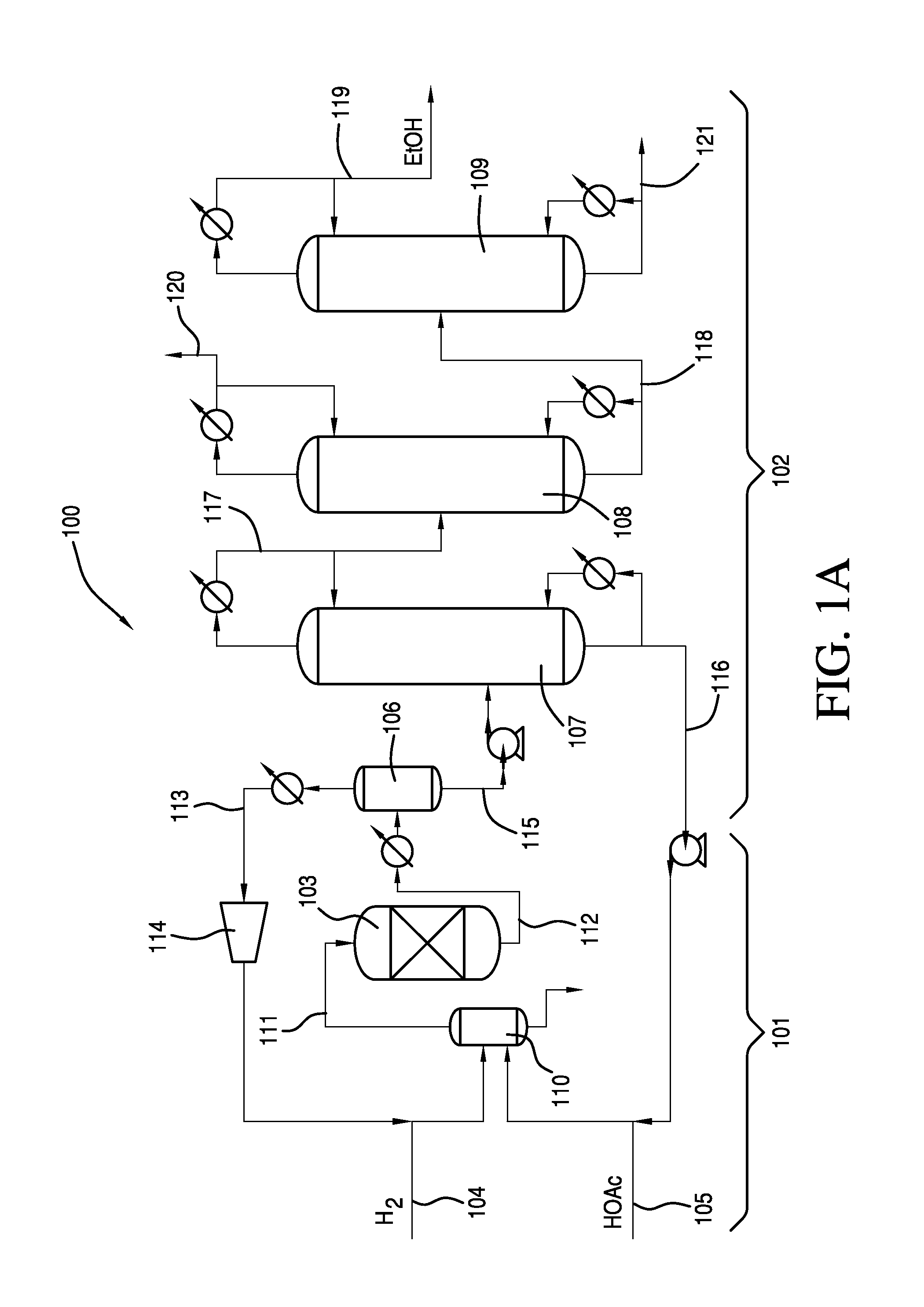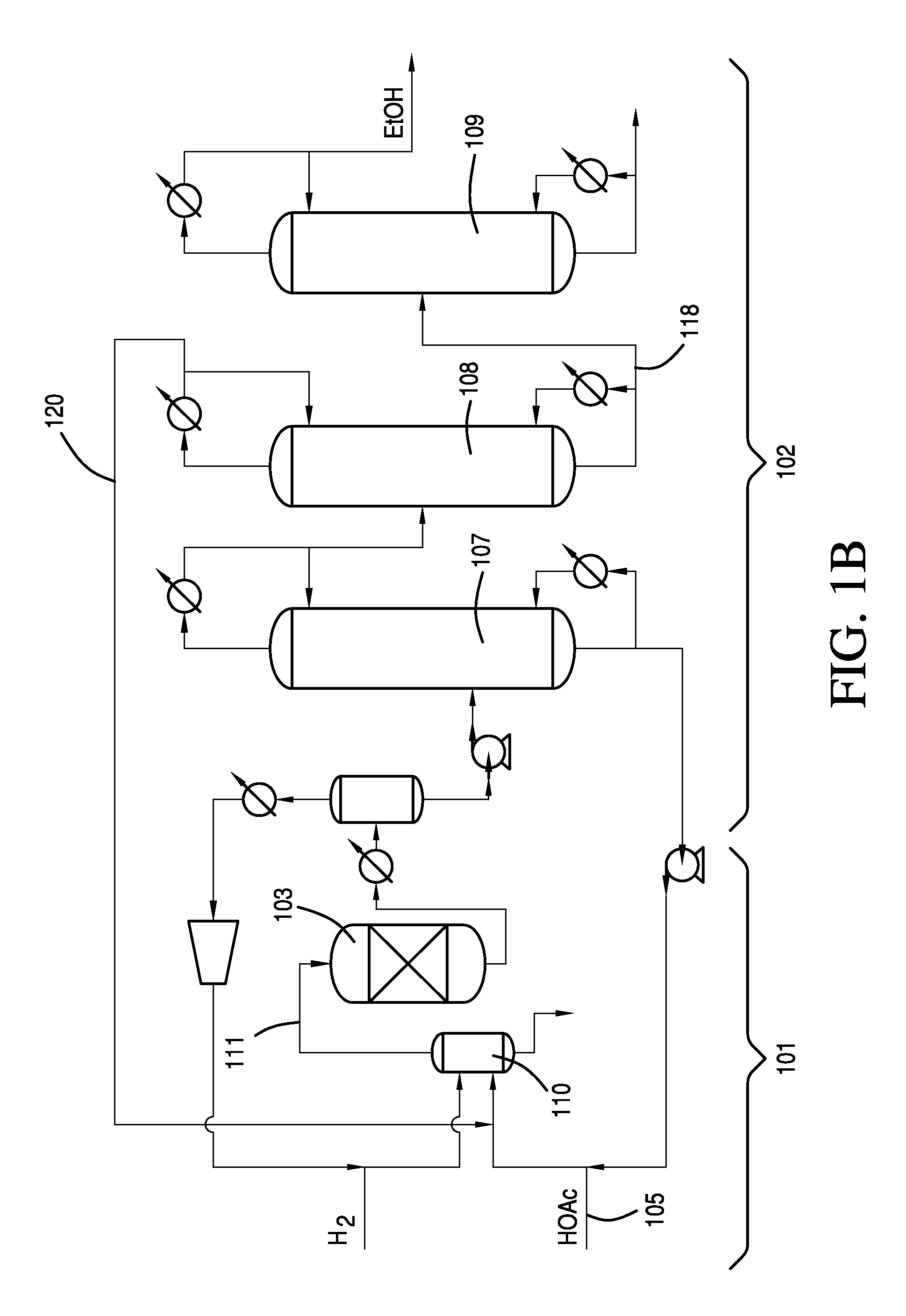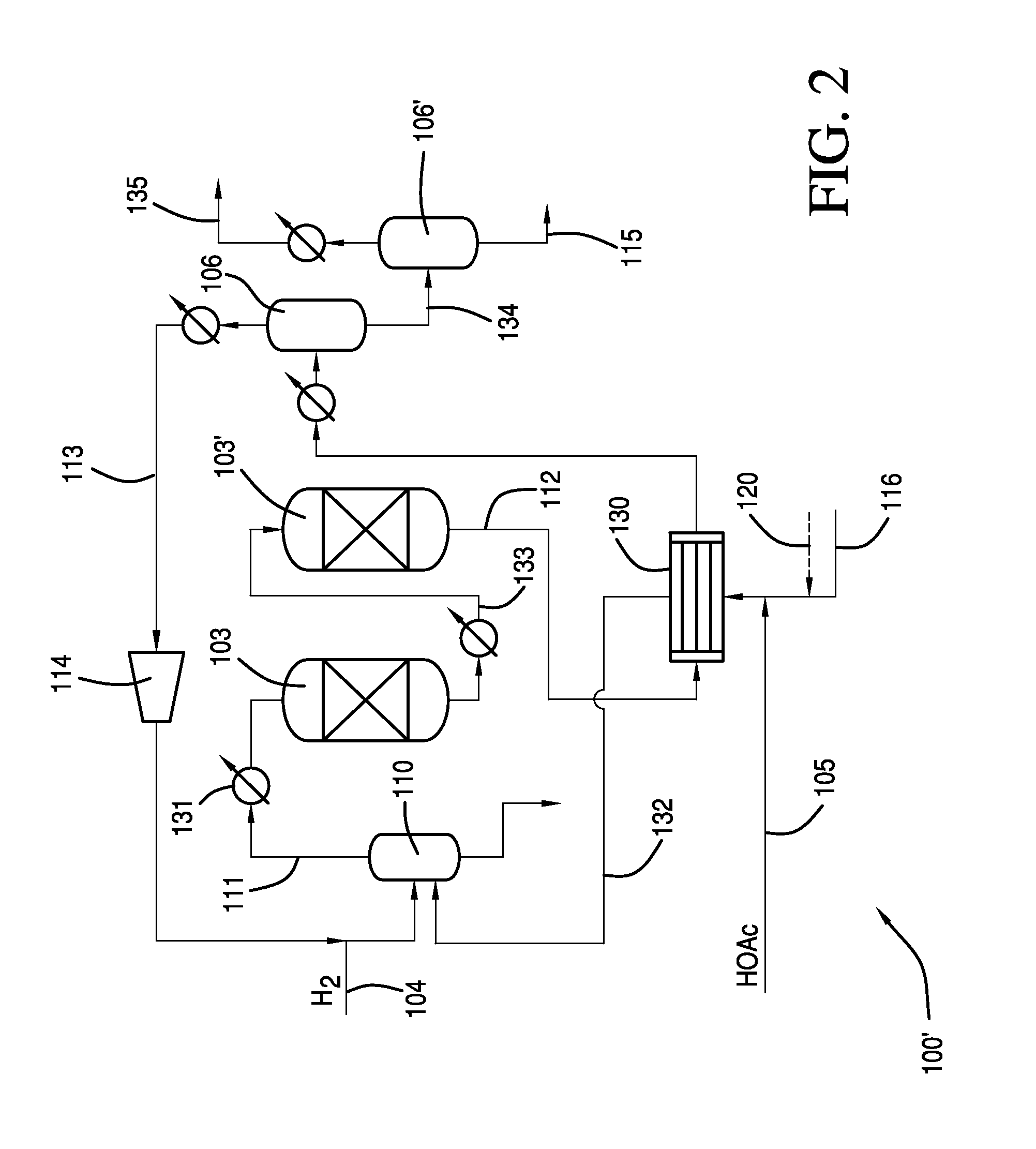Process for recovering ethanol
a technology for recovering ethanol and ethanol, which is applied in the preparation of oxygen-containing compounds, purification/separation of oxygen compounds, organic chemistry, etc. it can solve the problems of difficult separation, limited production and recovery of ethanol from such reaction mixtures, and unreacted acid remains in crude ethanol products
- Summary
- Abstract
- Description
- Claims
- Application Information
AI Technical Summary
Benefits of technology
Problems solved by technology
Method used
Image
Examples
example 1
[0077]A crude ethanol product comprising ethanol, acetic acid, water and ethyl acetate was produced by reacting a vaporized feed comprising 95.2 wt. % acetic acid and 4.6 wt. % water with hydrogen in the presence of a catalyst comprising 1.6 wt. % platinum and 1 wt. % tin supported on ⅛ inch calcium silicate modified silica extrudates at an average temperature of 291° C., an outlet pressure of 2,063 KPa. Unreacted hydrogen was recycled back to the inlet of the reactor such that the total H2 / acetic acid molar ratio was 5.8 at a GHSV of 3,893 hr−1. Under these conditions, 42.8% of the acetic acid was converted, and the selectivity to ethanol was 87.1%, selectivity to ethyl acetate was 8.4%, and selectivity to acetaldehyde was 3.5%. The crude ethanol product was purified using a separation scheme having distillation columns as shown in FIG. 1A.
[0078]The crude ethanol product was fed to the first column at a feed rate of 20 g / min. The composition of the liquid feed is provided in Table ...
example 2
[0081]A crude ethanol product comprising ethanol, acetic acid, water and ethyl acetate was produced by reacting a vaporized feed comprising 96.3 wt. % acetic acid and 4.3 wt. % water with hydrogen in the presence of a catalyst comprising 1.6 wt. % platinum and 1% tin supported on ⅛ inch calcium silicate modified silica extrudates at an average temperature of 290° C., an outlet pressure of 2,049 KPa. Unreacted hydrogen was recycled back to the inlet of the reactor such that the total H2 / acetic acid molar ratio was 10.2 at a GHSV of 1,997 hr−1. Under these conditions, 74.5% of the acetic acid was converted, and the selectivity to ethanol was 87.9%, selectivity to ethyl acetate was 9.5%, and selectivity to acetaldehyde was 1.8%. The crude ethanol product was purified using a separation scheme having distillation columns as shown in FIG. 1A.
[0082]The crude ethanol product was fed to the first column at a feed rate of 20 g / min. The composition of the liquid feed is provided in Table 9. T...
PUM
| Property | Measurement | Unit |
|---|---|---|
| wt. % | aaaaa | aaaaa |
| wt. % | aaaaa | aaaaa |
| wt. % | aaaaa | aaaaa |
Abstract
Description
Claims
Application Information
 Login to View More
Login to View More - R&D
- Intellectual Property
- Life Sciences
- Materials
- Tech Scout
- Unparalleled Data Quality
- Higher Quality Content
- 60% Fewer Hallucinations
Browse by: Latest US Patents, China's latest patents, Technical Efficacy Thesaurus, Application Domain, Technology Topic, Popular Technical Reports.
© 2025 PatSnap. All rights reserved.Legal|Privacy policy|Modern Slavery Act Transparency Statement|Sitemap|About US| Contact US: help@patsnap.com



